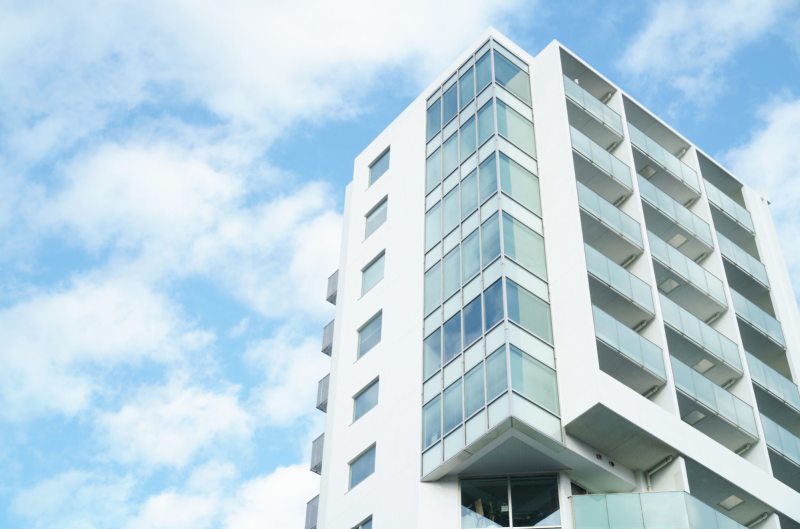Being a member of your new condo’s board of directors is a big responsibility that involves, among other things, managing the warranty on your community’s common elements.
At Tarion, we understand that common elements warranty claims can sometimes be time-consuming, complicated, and difficult. Our role is to help facilitate a resolution between you and your builder, and one of the ways we can help is by conducting a “common elements meeting.”
To shed some more light on how a common elements meeting might help your condo board, we sat down with Ali, a Senior Warranty Services Representative in our Common Elements team.
Can you start by giving us a brief overview of common elements meetings? For example, when do they happen and what is their purpose?
When common element warranty claims are submitted, the vendor/builder and condo corporation (which is represented by the condo board) are expected to discuss the issues and reach appropriate resolutions.
Let’s take the first year performance audit as an example. Tarion reviews the formal communications between them that are documented in the Performance Audit Tracking Summary, which lists all the items that need to be addressed. If the assigned Tarion representative sees that communication is stalled or claims are not being addressed, they’ll recommend a common elements meeting to discuss the progress on the file and help create an action plan for moving forward.
Sometimes the vendor/builder and condo board may be working well together but might need some extra help in understanding how the warranty works or with contentious issues. In these situations, either party may reach out to their Tarion representative and request a common elements meeting.
Tarion’s goal in these meetings is to facilitate communication and make sure that everyone understands their warranty obligations. In our experience, the files where we are involved early and often usually result in the best outcome for both parties.
Who can participate in this meeting? Also, is there anyone who should or should not be there?
Anyone who is involved in the common elements warranty process can attend. At the very least, the condo board’s designate and the vendor/builder’s representative should be present. I always recommend that the property manager and the person who conducted the performance audit be there too. Lastly, depending on the topics being discussed, it may be important for condo board members to attend so they can understand first-hand how the process is moving and the required next steps.
On the flip side, these meetings should not be used as a town hall for the broader condo community. In my experience, there is more open dialogue and beneficial outcomes achieved through a smaller group discussion.
And how does the meeting typically unfold?
There is no formal structure. Typically, I like to begin with brief introductions and reviewing the warranty timelines and upcoming critical dates. After this, I like to have an open floor discussion – this can be about specific claims submitted, questions about warranty coverage or the warranty process, or developing an action plan for resolving outstanding items.
What are some of the ways condo board members and their representatives can prepare so that they get the most value out of it?
Good question. I think that preparing for a common elements meeting is extremely important. To begin with, I would suggest that members of the condo board identify specific topics they would like to discuss. This could be related to warranty coverages, the warranty process, ongoing repairs onsite, or specific claims.
Next, they should send out a list of these topics to the attendees a week prior to the meeting. This gives the vendor/builder and Tarion time to review the topics so that they have the necessary information to provide a response at the meeting.
Finally, they should ensure that all Performance Audit Tracking Summary updates are completed prior to the meeting. If there are a lot of claim items without a response or set to an “Under Investigation” status, the meeting won’t be very effective.
What can condo boards expect coming out of the meeting?
In terms of tangible items, Tarion will issue a brief summary after the meeting outlining what was discussed. But what’s more important in my view are the intangible outcomes. A successful meeting will help improve communication between the vendor/builder and the condo board, answer questions about the warranty, and help everyone set priorities so that necessary work can be completed in a timely way.
The best meetings are ones where actionable items are developed – such as consultant reviews and joint walkthroughs – that help resolve claims.
Do you have any final comments or words of advice?
The common elements warranty process requires that the vendor/builder and condo board work together to resolve issues. A strong commitment from both parties to communicate actively and openly is critical to its success, and this is where common elements meetings play an important role. As Tarion representatives, we see their value and are happy to conduct them.
Thank you, Ali. If you would like more information about common elements meetings, feel free to reach out to our Common Elements team at commonelements@tarion.com.
